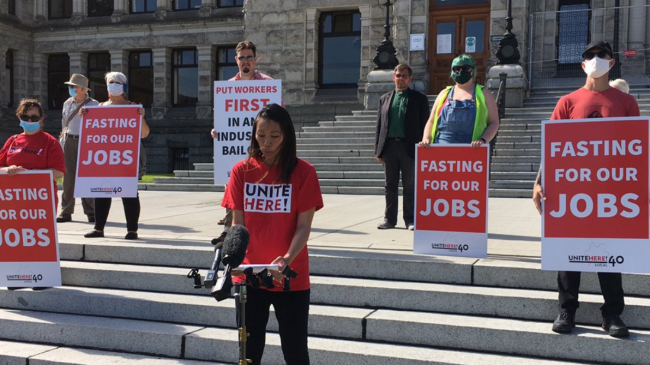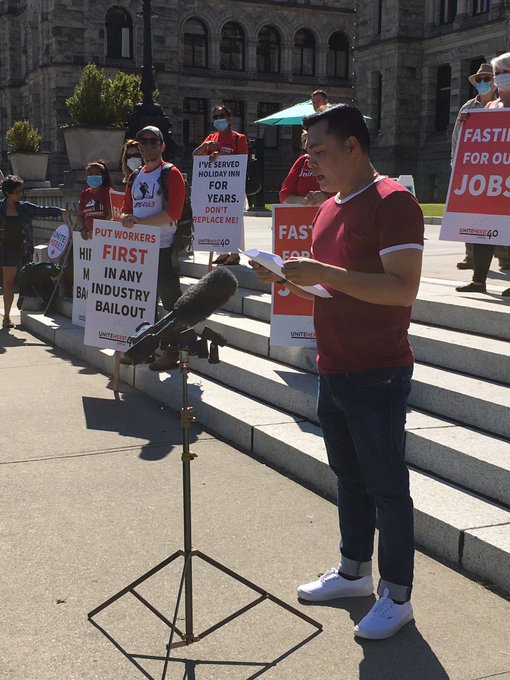Their goal is to make sure that any bailout or support for the tourism industry includes protecting workers’ jobs.
At the end August, Stephanie Fung with UNITE HERE Local 40 says about 50,000 hotel staff will see their temporary lay offs run out and they could face severance along with loss of seniority.
“Employers are trying to cut costs, they’re trying to get rid of longterm workers, and we feel like it’s affecting all workers. All workers are in the same boat, union or non-union,” she tells NEWS 1130. “So, we want all workers who were laid off during COVID-19 to be able to return to their jobs.”
“They’re trying to use this pandemic as an excuse to replace workers with lower wages. They’re refusing to call back their longterm workers. It’s a sneaky way to just try and get rid of the longterm workers and get rid of those who have been there for so long, who’ve contributed,” Fung explains.
Naden Abenef is among the people taking part in the hunger strike to fight for her rights. She says workers have decided to take the drastic step to highlight how dire their situation is.
“We don’t have a job to go back to right now, it’s the unknown. [We want to] make sure we get our jobs back,” she tells NEWS 1130.
Abenef notes that for many, their jobs are lifelong commitments. Abenef’s 12 years at the Hyatt Regency in Vancouver is considered a relatively short time for those who have made the hotel business their careers.
“We need to act now, we need to push the government to guarantee our legal right,” she says. “Any financial relief, any support that goes out to these industries, they need to make sure that they’re not just throwing money away to the corporations, that actually the workers who actually do these jobs benefit from all this.”
Fung adds the key is for employers to be mandated to give all employees the chance to get their jobs back when the jobs come back.
Last week, Victoria announced it is conducting a review of layoff and recall rights of workers in the hotel sector.
[Top photo: B.C. hotel workers are holding a hunger strike in Victoria, calling on the province to support people in the industry who have been laid off amid the COVID-19 pandemic. (Courtesy Twitter/Unite Here Local 40)]

 LizaYuzda
LizaYuzda


